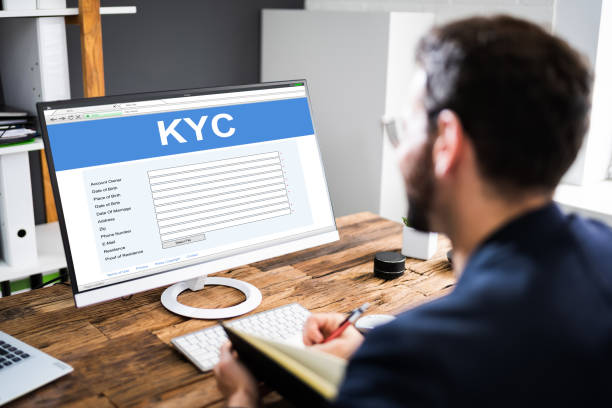First, let’s talk a bit about the background of KYC (Know your customer). As the world has gotten more digital, Know Your Customer (KYC) procedures have likewise developed from their original timeground. V-KYC, or Video Know Your Customer, is a new paperless and real-time video verification procedure. Several nations have already adopted this practice, and it is becoming necessary in others.
Though the specifics of the video Know Your Customer (KYC) may change according to local regulations, the concept is simple:
- Live photos and scans of government-issued IDs are used to verify the user’s identification.
- To further verify the user’s identification and avoid fraud or identity theft, the agent takes pictures of them and runs them through an artificial intelligence-driven face-match/face-liveness check.
There are a number of video SDKs out there that can help businesses set up the first video conversation. But in this article, we’ll be discussing the role of vKYC in the education industry.
Taking picture/video at greatest quality
It is often necessary for the KYC agent to photograph the user and their supporting papers throughout the verification process. However, there might be more effective solutions than stopping the video stream to get a still image. It isn’t easy to implement, and the quality of the output may need to be higher than usual for verification reasons.
Changing the Face of Student ID Verification
KYC video call have become a powerful tool, particularly in the field of education. This cutting-edge form of verification not only facilitates a trustworthy online learning setting but also protects the identities of both students and instructors.
A Video Chat KYC Is the Future of Authentication
Before the rise of digital technologies, KYC (Know Your Customer) processes relied heavily on paper documentation and personal meetings. However, there is an urgent need for a more rapid and secure verification mechanism as more and more educational platforms provide online courses, seminars, and degrees.
Here comes the know your customer video call. It helps schools verify that the applicants they accept are who they say they are. Now, all it takes to confirm a teacher’s or student’s identification is a quick video chat. It reduces the possibility of fraud while being efficient and simple to use.
Video Call Authentication: AGame Changer for Identify Verification
The use of video chats for Know Your Customer (KYC) authentication increased enrollments for online courses. This is because it helps provide schools and kids peace of mind.
The KYC video call is unique for a number of reasons:
- Quickness: Time spent on conventional verification procedures may easily exceed a week. It just takes a few minutes with a video call.
- Accuracy: There is far less room for mistaken assumptions or misunderstandings.
- Convenience: no need for students or teachers to travel or provide hard copies of anything.
Positive Effects on the Academic Sector
There are several advantages to using video calls for KYC verification throughout the enrollment and verification process in schools. Here are a few of the more notable benefits:
- Safety and Security: Information in the field of education is typically very confidential. Thus, it is essential that all transactions be conducted in a secure environment. Video calls may be used for Know Your Customer checks to verify the identity of the instructor or student.
- Global Reach: Institutions that welcome students from all around the world may expand their reach by using a Know Your Customer (KYC) video call to screen new students. A simple video call can verify a student’s identification regardless of location.
- Cost-Efficient: Schools may save a lot of money on verification by not using as much infrastructure or staff.
Future of Know Your Customer Calls through Video Calls
An estimated 70% rise in the number of institutions using the video call KYC verification technique by 2025 is predicted in light of the increasing demand for online education, especially during the pandemic.
The constant development of technology supports this trend by making these operations even more discreet. For instance, using AI in KYC video chats allows for the automated detection of any differences, which further strengthens the reliability of the verification procedure.
Future Obstacles
However, like with any new technology, there are certain difficulties associated with KYC video calls.
- The Limits of Technology: Some classrooms may need more technology or internet access for a successful video conference.
- Data Protection: Institutions must guarantee that the video call KYC procedure is encrypted and safe in light of the growing danger posed by cybercriminals.
Conclusion
The educational system is being transformed by the introduction of video chats for KYC verification. As technology improves, the procedure becomes more streamlined, reliable, and user-focused. Institutions of higher learning that use this safe practice will be making a significant move toward a more secure and prosperous future.








